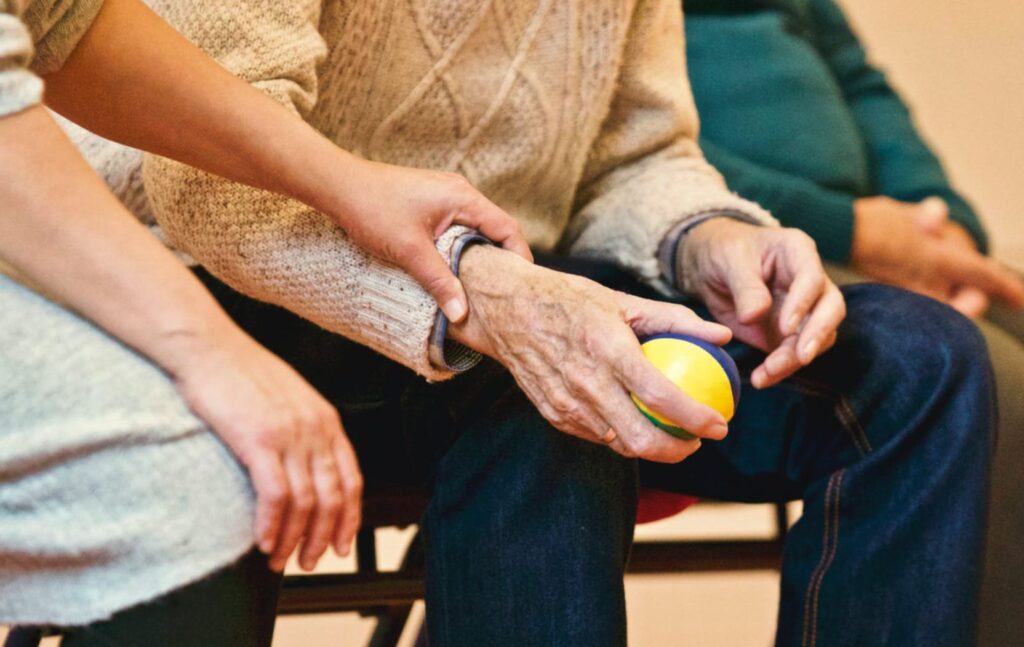When it comes to our loved ones, it is understandable that we want to take care of them for as long as possible. But what does “as long as possible” mean? Research and conversations with professionals in nursing homes show certain signs that can give us an answer to the question: When is the right time for people to seek care in a home for the elderly and infirm?
If your elderly person is suffering from Alzheimer’s disease or some other dementia condition, you have probably thought about this issue. You may be caring for a family member in your home and your situation is not worrying, but there is a possibility that you feel problems reconciling constant care and other life obligations and therefore it is important to know how to recognize the moment of care in a nursing home.
When it comes time to talk to a parent or loved one about going home, it is natural to feel insecure because such a decision is very difficult to make. Many instinctively avoid talking to a parent until the case becomes urgent, and it is much more productive to prepare both the parent and themselves for what may happen in the future.
As this phase in life can be stressful for both you and your parents, read our tips that can help you have a productive conversation.

Reasons why homes for the elderly and infirm are avoided
Families often feel guilt and anxiety associated with even the thought of being placed in a nursing home. Maybe they promised their loved one a long time ago that they would not be placed in a nursing home. They may feel as if it is their duty to take care of their spouse or partner in their own home. Others may have had a bad experience (or heard of it) in a nursing home so they are afraid of choice. Such thinking certainly raises concerns that their loved one will not receive adequate care and nursing in an institution such as eating at home. Of course, this brings with it the worry of a possible decline in functioning and quality of life.
It is important to recognize signals as soon as possible that reveal that a person needs professional care so that you have the opportunity to soberly agree on all the details about moving to an institution that will greatly help you.
Here are some tips on how to recognize that the time has come when you need to seek professional help for your loved ones:

Bruises and scars
Chances are your mother won’t say she tripped down the stairs if she’s afraid of going home or doesn’t want to upset you. It is up to you to play the role of a detective and find out if the bruises are the result of a fall. In older people, bruises almost always occur after a stroke, even if they are strong. If you notice bruises and scratches on your parents, talk to them or your doctor to know the appropriate steps to take.
Skipping medications
You’ve noticed that your mother’s medicine box is intact and you’re not sure if it’s forgetfulness or a decision not to drink them. Older people often need someone to make sure medications are properly distributed and are always taken on time. Medication problems are the most common reason why older people end up in homes.
Difficulty driving a car
This is one of the things that your parents will not give up so easily – driving a car. The car provides certain independence and it is very difficult to talk to adults about giving up that advantage. You may notice that the mother does not show up for some scheduled events, is driven by a friend, or will even admit to herself that she is having difficulty … If you think you have not received the complete truth from your parents, inspect the car for damage.

Changes in appearance
Small details can be some of the first signals that family life is not as secure as it once was. You may notice that an older family member came to celebrate their grandson’s birthday in dirty or torn clothes, and you know that couldn’t have happened in the past. Such behavior can occur years before the onset of a disease like dementia, but it is a signal that something is wrong. Other changes can be seen in a change in clothing style, hairstyle, or weight loss. These changes, of course, do not have to mean every time it is a brain failure or a serious condition, but it can be depression that makes them afraid to drive a car or enter a store.
Abnormal forgetfulness
It happens to everyone that they forget about the little things and experts are not so worried about when someone loses their car keys. It is much more serious if someone loses the keys, finds them, and forgets what they are for and how to use them. If you’ve noticed that your parent forgets things like this, maybe it’s time to talk to an expert as far as possible.
They get lost when going to famous places
Common places such as a grocery store, bank, Assisted Living or church should be routine places for your parent. If you find that you can no longer find your way to these destinations, chances are something is wrong. If you can no longer trust your loved one’s abilities to move around the city on their own, it may be time to discuss moving to a Home for the Elderly for their safety.

Final thoughts
As difficult as the very thought of placing a loved one in a nursing home is, know that it is the best solution for everyone because it is a place where they will have professional help and supervision 24/7. In addition, life in nursing homes is not monotonous at all, numerous parties, games, and other activities are organized that will make the stay of the elderly pleasant. See more on carezee.co.uk. Moreover, research has shown that people in a nursing home are happier and more satisfied because they do not feel pressured to be a burden to their families.















